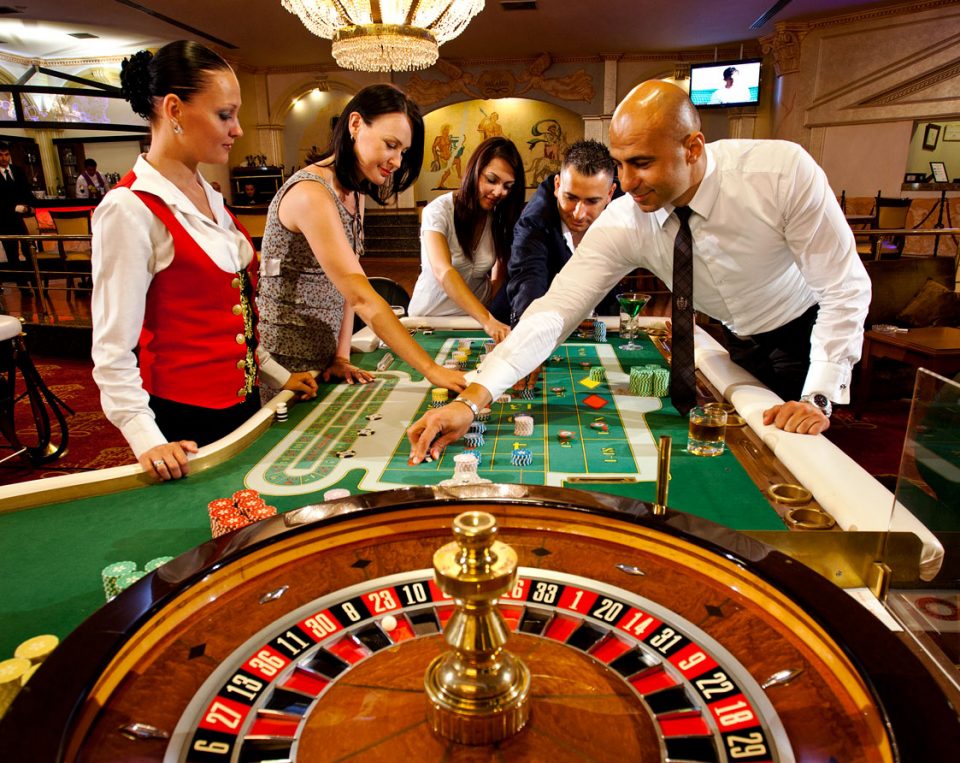
Gambling games have long been associated with the rush of chance and the excitement of luck. Many people enter a casino with the expectation that their success is contingent solely on luck. However, a more profound investigation reveals that these games encompass much more than just the element of luck. Understanding the rules, tactics, and human psychology behind casino games can greatly enhance the satisfaction and improve one’s chances of winning.
Aside from the captivating sounds of rotating slots and gameplay, casino games involve a diverse array of skill, methodology, and decision-making. Whether you are participating in blackjack, poker, or even baccarat, knowing the tactics can significantly influence the result of the game. Moreover, the psychology of the players and understanding the probabilities behind each game can shift the balance of success away from mere luck. Nhà Cái W88 By acknowledging these aspects, players can appreciate casino games as a mixture of fun and cognitive challenge, transforming their approach from one of passivity to one of active engagement.
The Psychological Aspects of Gambler’s Behavior
Comprehending the psychology of gambling reveals that player conduct is driven by far more than mere luck. The excitement of risk, immediate reinforcement, and the potential for winning large sums can create a intense emotional experience. Many players become captivated by the thrill, which can lead to a cycle of increased betting and gambling, often fueled by a hopeful hopefulness that colors their perceptions of success probabilities.
Another key element of the psychology of casino games is the illusion of control. Many gamblers think that their choices, such as the choice of games or wagering strategies, can significantly influence the outcome. Such a belief can enhance their engagement and enjoyment, but it also contributes to persistent gambling behavior, as players often underestimate the role of randomness in these games. The excitement derived from making choices gives players a sense of involvement, which can be misleading in terms of understanding the true odds involved.
Furthermore, the environment of the casino plays a crucial role in shaping a gambler’s experience. Factors like illumination, sounds, and the presence of other players create a stimulating atmosphere that reinforces the thrill of the game. This thoughtfully crafted environment can lead gamblers to lose track of time and money spent, as they become enveloped in a sensory experience that heightens their affective investment. Identifying these psychological dynamics is essential for understanding why casino games attract players and continue to them coming back for more.
Skill vs. Luck in Casino Games
In the world of gambling games, the debate between skill and chance is a notable one. Many players believe that fortune is the predominant factor, especially in games like slots where outcomes are random. However, there are activities that evidently showcase the significance of skill, such as Texas Hold’em and 21, where players can employ tactics and decisions that influence their overall success. Understanding the dynamics and intricacies of each activity can greatly affect a player’s outcome and results.
The role of expertise becomes apparent when examining the various tactics accessible to players. In activities like poker, for example, players must interpret their rivals, calculate probabilities, and make informed decisions based on their hand and the community cards. This level of strategy demonstrates how skilled players can consistently surpass novices, proving that winning is not solely based on chance but rather on the application of insight and expertise. Similarly, in 21, players can use techniques like counting cards to gain an advantage over the casino, further illustrating the importance of skill.
On the flip side, luck cannot be entirely disregarded in any casino game. While skill can enhance a player’s odds of success, unpredictable results still play a significant role. Even the most effective tactics can break down due to the random character of card draws or spins. This interplay between expertise and luck creates a dynamic gaming environment where players must adjust and respond to unpredictable events while also utilizing their abilities. Ultimately, effective gambling gaming is a blend of both elements, contributing to the complexity and excitement of the experience.
Methods for Winning
To succeed in gambling, players must understand the significance of creating a strategy tailored to the specific game they are participating in. Each title has its own set of rules, probabilities, and details that require a considerate method. For instance, in games like craps, players can use techniques such as statistical tracking to make more informed decisions and enhance their odds of winning. Grasping the probabilities and payouts associated with each game can enable players to make smarter choices and enhance their overall gaming experience.
Financial control is a further vital strategy that cannot be ignored. Players should establish a budget for their gaming sessions and stick to it. This guarantees that they do not exceed and helps establish a sense of discipline over their gaming activities. Determining in advance the amount to wager and when to stop can avoid emotional decisions that often lead to big losses. Effective bankroll management allows players to savor gambling without the concern of losing more than they can afford.
Finally, gaining insights from play and watching other players can provide beneficial understanding. Many successful players spend time analyzing not only their personal play but also that of their peers. This analysis can uncover various tactics and methods, ultimately promoting better decision-making. Engaging in self-reflection after gaming sessions helps players identify what succeeded and what was ineffective, enabling them to tweak their strategies over time. By uniting understanding, self-control, and noticing, players can boost their odds of success in gambling.
